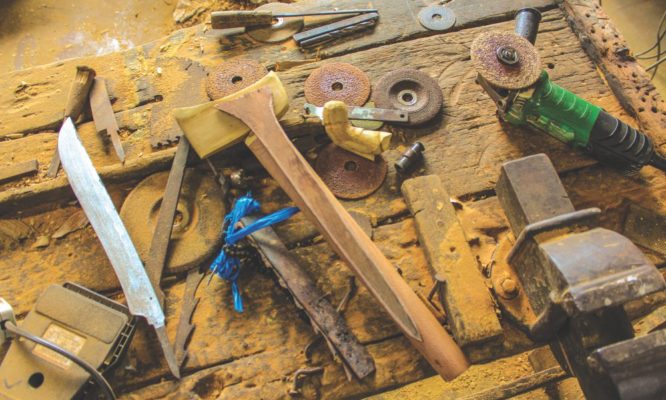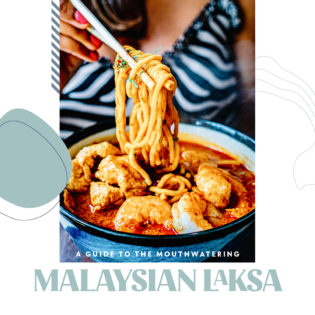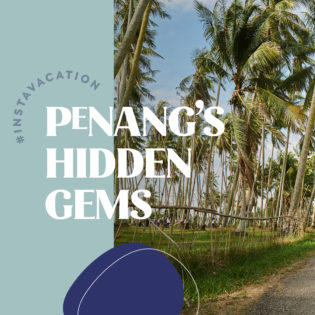Practitioners fight to preserve the traditional art form in modern Malaysian society.
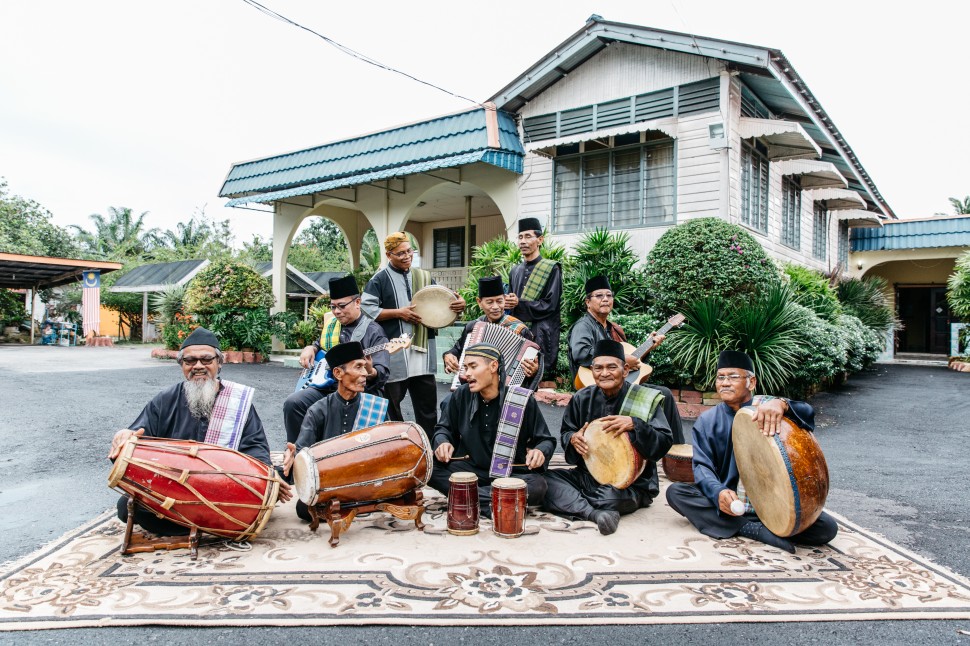
Armed with their rebana ibu, gong, kempul, kempreng, enteng-enteng and rebana anak, the seven baju-Melayu-garbed gentlemen lock eyes with the audience for a split second before launching into their next song. As the unmistakable strains of the late Taiwanese singer Teresa Teng’s The Moon Represents My Heart fill the kampung community hall, the audience emits a collective gasp of surprise before breaking into delighted applause. Who knew it was even musically possible to harmonise a Chinese romantic ballad with traditional instruments?
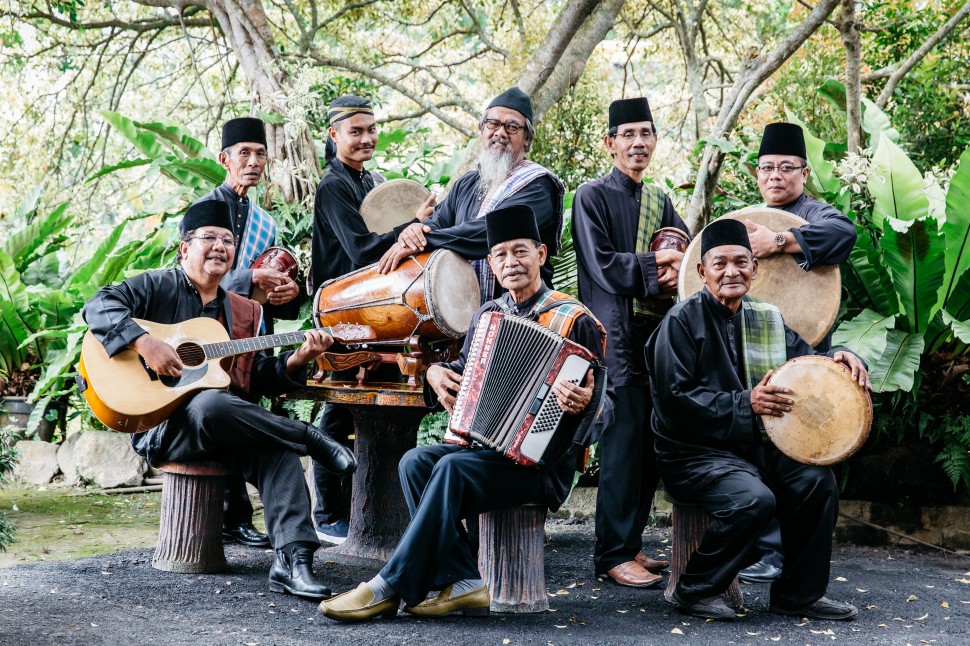
Then again, these are no ordinary musicians. The gentlemen on stage are members of Cempuling Moden Cendana Klasik, an ensemble of musicians who specialise in a percussion-based musical genre performed at celebratory Malay occasions such as weddings, banquets and birthday parties. Renowned for their versatility and stamina, cempuling performers can perform a vast repertoire of songs without the aid of note sheets. During competitions, they are expected to go on for 24 hours!
There is very little historical documentation on cempuling but it is believed to originate from Java, Indonesia, where it was popularised by Sunan Kalijaga, one of nine famed Islamic clerics collectively known as Wali Songo. Famed as a people person, he used arts and culture, notably cempuling, as a medium to convey his dakwah (spiritual teachings) during the 15th century. When the Islamic faith spread to this part of the world, cempuling – whose name is a portmanteau of the Malay words cem (a truncation of the word macam-macam, which means variety), pul (from berkumpul or gathering) and ling (from ingat-mengingati, meaning to remind each other) – gradually found its way into popular Malay culture.
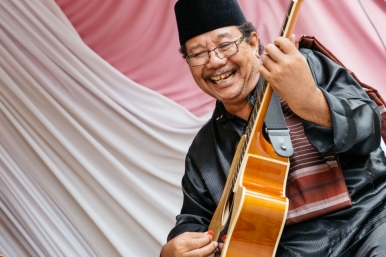
“Cempuling became popular in kampungs because it made for a wholesome form of entertainment,” explains Diro Warsoh, leader of Cempuling Moden Cendana Klasik. “Villagers could get to know their neighbours and foster silaturahim (camaraderie) while enjoying a cempuling performance. Those who were musically inclined could get together with like-minded friends to play music.”
Unlike typical musical bands, cempuling performers rarely organise themselves formally. This is roughly how it works: a few performers may get together to discuss the song list, go back to learn the songs by themselves, and then on performance day, turn up to ‘do their thing’. In other words, a lot depends on the individual’s ability and the group’s chemistry. While traditional dakwah songs form the mainstay of their repertoire, most cempuling practitioners today are well-versed in a variety of genres and can memorise a vast repertoire of songs.
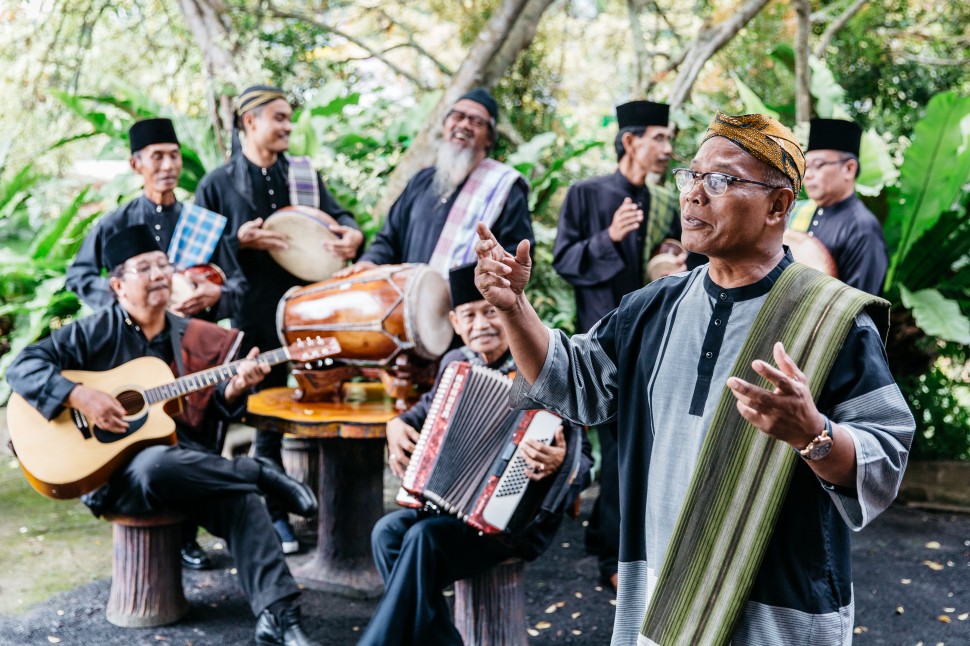
With the advent of modern entertainment options, cempuling has experienced a decline, with only a handful of practitioners remaining in Malaysia. Alarmed by the situation, third-generation practitioner Ariff Ahmad rallied his friends from his neighbouring kampung to form Cempuling Klasik Cendana Moden in 2006. The members operate out of Homestay Banghuris, a collective of three villages in Sepang District, Selangor and also work with local stakeholders to promote cempuling as a heritage performance art form. The group functions as a pool of active musicians rather than a full-fledged band, but its appearances are bringing renewed attention to the art, and more importantly, attracting new blood.
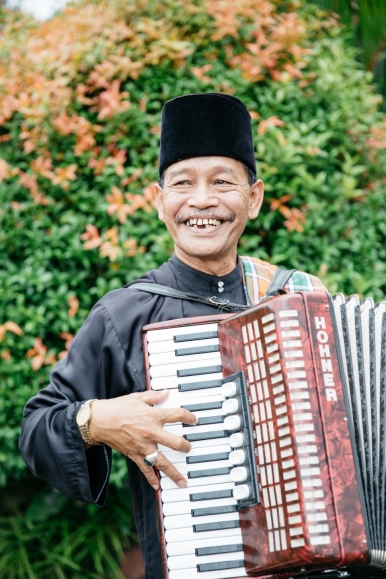
Air steward Muhhammad Fitri, Diro’s 25-year-old son, is a cempuling newcomer who confesses, “Initially, I wasn’t interested because I thought it was some old people’s pastime. Then one day, my father challenged me to take part in a cempuling competition where I had to perform for 24 hours straight. After experiencing first-hand how challenging it really was to sing, play instruments, and memorise lyrics on the fly, I was hooked.”
To the uninitiated, watching a cempuling performance is an eye-opener. Even with minimum practice, they harmonise together tunefully like they’ve been playing together for years. It’s clear what makes them work together so well: passion, dedication and the unspoken understanding that music is the one true universal language that goes beyond cultural borders.
For show appearances, visit facebook.com/CempulingCendanaKlasik.

